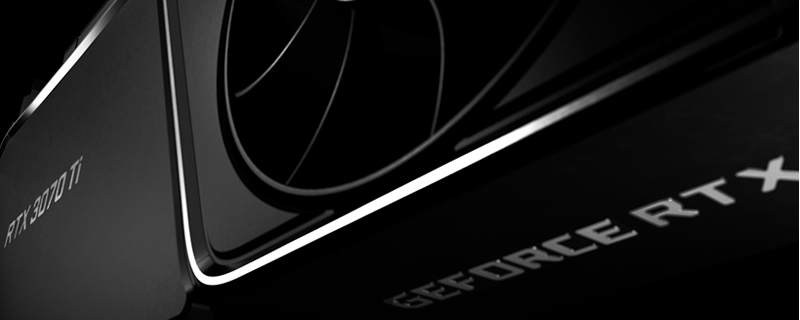Nvidia’s RTX 4060 Ti will reportedly deliver RTX 3070 performance for under $500
Nvidia’s RTX 4060 Ti targets RTX 3070 performance at sub-$500 pricingÂ
Rumour has it that Nvidia’s targeting RTX 3070 performance levels with their upcoming RTX 4060 Ti graphics card, a GPU that is expected to have a TDP of just 160 watts.Â
According to MyDrivers, Nvidia are targeting sub-$500 pricing for their RTX 4060 Ti, a pricing level that seems obvious due to their RTX 3070’s $499 MSRP. If Nvidia are targeting the same performance level with their RTX 4060 Ti, they need to target lower than $500 pricing. If this wasn’t the case, Nvidia’s RTX 4060 Ti would be worse value than an RTX 3070.
Based on leaked specifications for Nvidia’s RTX 4060 Ti, it looks like Nvidia are attempting to lower the material costs of their mid-range RTX models. The GPU’s 160W TDP allows manufacturers to use smaller, more affordable heatsink designs, its 128-bit memory bus allows the graphics card to be built with relatively few GDDR6 memory modules, and its lower number of CUDA cores and smaller memory bus should keep silicon costs low. Nvidia’s RTX 4060 Ti should be relatively cheap to produce, and that alone should allow Nvidia to target sub-$500 pricing.  Â
GPUs with small 128-bit memory bus sizes do not typically sell for $500 prices. Remember that Nvidia’s RTX 3060 Ti had a 256-bit memory bus, and Nvidia’s RTX 3060 had a 192-bit memory bus. Even AMD’s RX 6700 XT had a 192-bit memory bus, and its memory bus was complimented by AMD’s Infinity Cache. Narrower memory buses typically allow for less memory bandwidth and force GPUs to be connected to fewer GDDR memory chips. Smaller memory uses reduce manufacturing costs thanks to simpler PCB designs and lower silicon and memory costs. GPUs with small memory buses should be affordable, and Nvidia should remember that when pricing their lower-end RTX 40 series GPUs.Â
You can join the discussion on Nvidia’s RTX 4060 Ti performance and pricing on the OC3D Forums.



